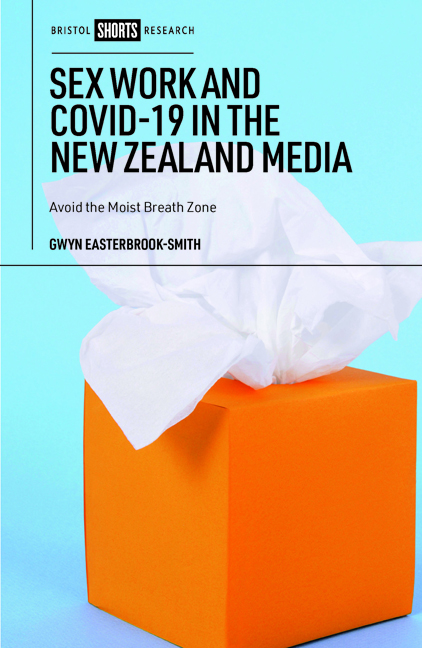One - Introduction
Published online by Cambridge University Press: 18 January 2024
Summary
The worst tour of my sex working career took place roughly ten days before New Zealand entered our first COVID-19 lockdown. I had booked non-refundable flights, and wasn't sure if I should go at all, torn between a fear of catching the terrifying new virus which was sweeping Italy, and a different but no less pressing concern that if we went into a lockdown for an unspecified period my income would dry to a trickle. My phone was quiet. Clients were exercising their own selfpreservation instincts, and I decided that going out to socialise was risky. Instead, I sat in my hotel room scrolling the endless news updates on my personal phone, occasionally checking if my work phone had ding’d without my noticing. The experience of the pandemic in New Zealand was undoubtedly different to that almost anywhere else: our initial lockdown was astonishingly successful, bringing the number of community cases back to zero. The experience of doing sex work in New Zealand is also quite different to that of doing it in most other places in the world, with the industry having been decriminalised for nearly twenty years now. The experience of endlessly scrolling the news during the March– April 2020 period was evidently one which I was not alone in, with research confirming this phenomenon both quantitatively, and highlighting the qualitative dimension of what came to be called ‘doomscrolling’.
The intersection that exists between these three topics – sex work, news media and the pandemic – is where this book's focus is located. Sex work is a nearly universally stigmatised occupation, to a greater or lesser degree depending on the context, and the media is a key site where this stigma is produced and reinscribed, and may be negotiated and reduced. One of the stigmas that sex workers have been subjected to – described in greater detail later in this chapter – is the stereotype that we are vectors of disease. As the pandemic took hold, I was among those wondering how it would play out for sex workers: how would sex work be treated now we faced a situation where all members of the public could reasonably be considered potential vectors?
- Type
- Chapter
- Information
- Sex Work and COVID-19 in the New Zealand MediaAvoid the Moist Breath Zone, pp. 1 - 29Publisher: Bristol University PressPrint publication year: 2023



